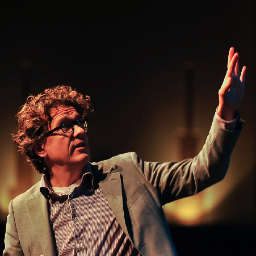TALKING ABOUT A NEW GENERATION
December 21, 2018
My father has sent me a story. The email was called “A backpack full of memories”, the subtitle “Forward to the past”. He later told me that this project has made him happy. “You need projects, always” he said. This latest project he just sent me was a description of the first 15 years of his life, starting with his pre World War memories.

He was writing about his first 15 years while we were writing about the coming fifteen years.
Unknowingly father and son were working on the same project. I (boy on the left with the flowers) was doing research on the Post Millennial Generation. In our report, we coin these post-millennials “The Synthetic Generation”. My father (in the front of the picture) is of the Silent Generation.
What we’ve discovered during our research is that the Silent and the Synthetic have a lot in common.
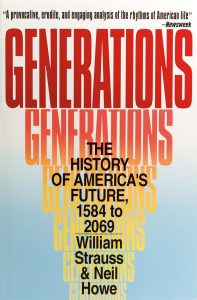
It’s all being explained in a book called Generations – the history of the future – by two historians, Neil Howe and William Strauss. A recurring cycle of four generations carry the specific characteristics of each generation throughout history. Counting back, this new synthetic generation should be like a sort of reincarnation of the silent generation. I was wondering: “Does the theory stand my father’s test?”
So for more than a son’s interest in his fathers past, I started reading.
I hadn’t even started or I received a second email with his sequel “Now and Then”. I compiled both pieces and mirrored it with our own story on the Synthetic Generation.
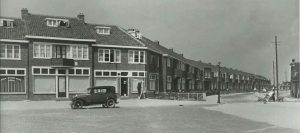
This square in Gouda, the town in which my father was borne, is where his memories start. The square was his medium. Behind each door lived a family, each house has a number. My father goes door by door explaining family, religion, trust (especially during the war) friends, and child-play. That were his themes.
The first media that broadened his world was the radio.
He mentions the distribution radio and wire broadcasting (a cable connection to the home and choice of three different channels). Distribution radio was like a mesh network. Your neighbor could connect you to their radio or gramophone by a rooftop wire. Unintendedly you could listen to the neighbors’ quarrels when the microphone was in the room. I found an old movie that explains how distribution radio works.

As shown in the film (third frame) you can hear your neighbors through the microphone. The solution (frame 4) is putting a cloth in the microphone so you couldn’t hear them anymore. So much has changed since then. The youngsters of the synthetic generation are growing up as broadcasters, they want to be heard.

They want everyone to hear them and they want to hear everyone. They blend with media as they get their own YouTube channel (or Tik-Tok, Boomji, or whatever platform). They experience the world through the eyes of their own generation. Like my father did I would say. In his time children and their parents were much more separated. Nowadays parents treat their children as adults. A pity he says, as if they steal their (innocent) childhood. Perhaps the influencer behavior can be seen as an escape from adult life, turning their heads to each other.
A good way of understanding how my father perceives the world is by his long list of “Then and Nows”. I counted 18, you can see them listed here. How it was back then compared with how it is now, is something you can only do when you’re having a history. In other words: you must be old.
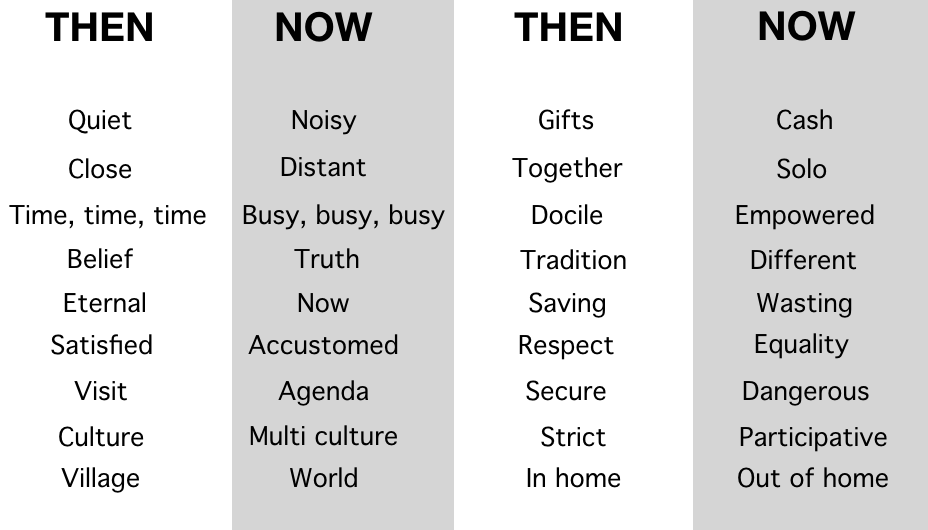
What stands out for my father is how quiet it was on the street versus how speedy life is today. “Time Time Time” has transformed into “Busy Busy Busy”. Modern times are exciting he says, back then it was about being satisfied. Think most words in the list speak for themselves. The fact that people mostly lived in their homes (no frappucino’s on fancy terraces) defines his “closeness” versus distant. Today we travel distances but we don’t get closer to each other he says. In my father’s view
Distance makes people distant and with all modern technologies, people do not get closer together …….
One thing you need to know about my father is that he is an Apple junky and that he has voice-controlled his home. (And he’s hard of hearing; it drives my mother crazy when he shouts at his computer or Alexa). Still his techno-love is tempered by the idea that we are losing something. But we’re getting something in return from that same technology.
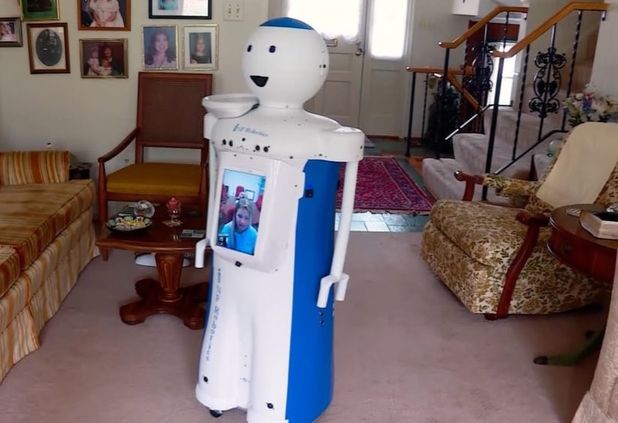
The robot is entering the retirement home. My father looks ahead, concluding new times are coming. Reading these sentences on his robot-vision, the new man touched me deeply. This text could have been mine.
Never dissatisfied, never jealous, always accessible, always polite and he knows what respect is. We are going to learn a lot from the new man ….
Is he in any or many aspects like this new generation? (The big question: Does the theory stand my father’s test?) I still find it a difficult question, but if the answer was yes, I would say:
- They both highly value “respect”, but they define it differently. In my father’s list, he puts respects opposite to equality. But is inclusiveness, gender equality, diversity (values of the new generations) really different from respect?
- The youngsters crave for authenticity. From the way I was raised, I can say that my father (and mother) was pretty much obsessed by the common man and how special every individual is. (But I’m pretty sure he thinks all these influencers are throwing away their lives and that you shouldn’t expose yourself like that).
- They’re serious. Unlike the Baby Boomers they are not rebellious (Trump is a Baby Boomer). They want to build. The tragedy is that they needed to build. The Silent Generation is a post-crisis generation. You can fill in the details for the future yourself.
The inconvenient truth is that in the Strauss-Howe theory the new generation is also a post-crisis generation.
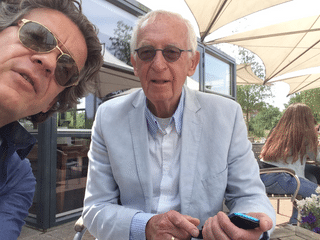

 English | EN
English | EN 